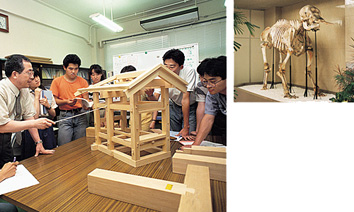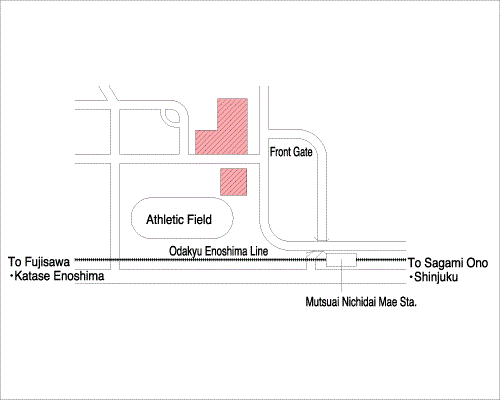College of Bioresource Sciences

Department
- Bioscience
- Zoological Science
- Marine Science
- Forest Science
- Environmental Science
- Agri-Science
- Food Science And Technology
- Food Business
- Global Coexistence Studies
- Veterinary Nursing
- Veterinary Medicine
- Agricultural Bioscience
- Chemistry and Life Science
- Veterinary Medicine
- Animal Science and Resources
- Food Business
- Forest Science and Resources
- Marine Science and Resources
- Bioenvironmental and AgriculturalEngineering
- Food Bioscience and Biotechnology
- International Development Studies
- Applied Biological Science
- Bioscience in Daily Life
In order to deal with the problems of the 21st century-increasing population, human survival, sustainable biological growth and development, the advancement and ethics of life sciences, etc.- the College of Bioresource Sciences aims to provide comprehensive education and research in the fields of biological production, environmental protection and restoration, life science, and human activities.
Agricultural Bioscience deals with the issues of sustainable agriculture, horticulture, plant diseases and pest management, plant life and science, molecular biology, and landscape architecture. Animal Science and Resources studies animal biology, the production of livestock and laboratory animals, and the protection of wild and semi-wild species. The goal of Marine Science and Resources is a perpetually sustainable marine environment that also allows efficient utilization and production of marine bioresources. Forest Science and Resources aims to utilize forest resources while protecting forest environments, and focuses on the relationship between forests and human activities. Bioenvironmental and Agricultural Engineering aims to build a recycling-based society in harmony with nature. Food Science and Technology aims to create safer, healthier and environmentally favorable foodstuffs from a scientific and technological angle. Agricultural and Biological Chemistry investigates all kinds of biological life forms, resources, foodstuffs and the environment using chemical and biological methods. Applied Biological Science researches the structure, metabolism and functions of microorganisms, and animal and plant cells at various levels. Food Economics studies food production, distribution and consumption from a social science perspective. International Development Studies grapples with the problems of developing countries, and aims for inter-cultural understanding from a broad perspective that includes the environment, technology, economics and international cooperation. Bioscience in Daily Life offers students a program of study in the fields of biotechnology and science in daily life, food for health, animal science in daily life, urban horticulture, and landscape architecture and science. Finally, Veterinary Medicine aims to train veterinarians and give them a firm grounding in life sciences with a focus on animal diseases and care.
Access and Contact
College of Bioresource Sciences
Graduate School of Bioresource Sciences
Graduate School of Veterinary Medicine
1866, Kameino, Fujisawa-shi, Kanagawa 252-0880
- JR Tokaido Line: From Tokyo Station; Change trains at Fujisawa Station (50 min.) to Odakyu Enoshima Line (take local train only); Get off at Mutsuai Nichidai Mae Station (9 min.); 3 min. on foot
- Odakyu Line: From Shinjuku Station; Change trains at Sagami Ono Station (40 min. by Odawara Line Express) to Odakyu Enoshima Line (take local train only); Get off at Mutsuai Nichidai Mae Station (25 min.); 3 min. on foot
- Tokyu Denentoshi Line: From Shibuya Station; Change trains at Chuo Rinkan Station (36 min. by Tokyu Denentoshi Line Express) to Odakyu Enoshima Line (take local train only); Get off at Mutsuai Nichidai Mae Station (19 min.); 3 min. on foot






